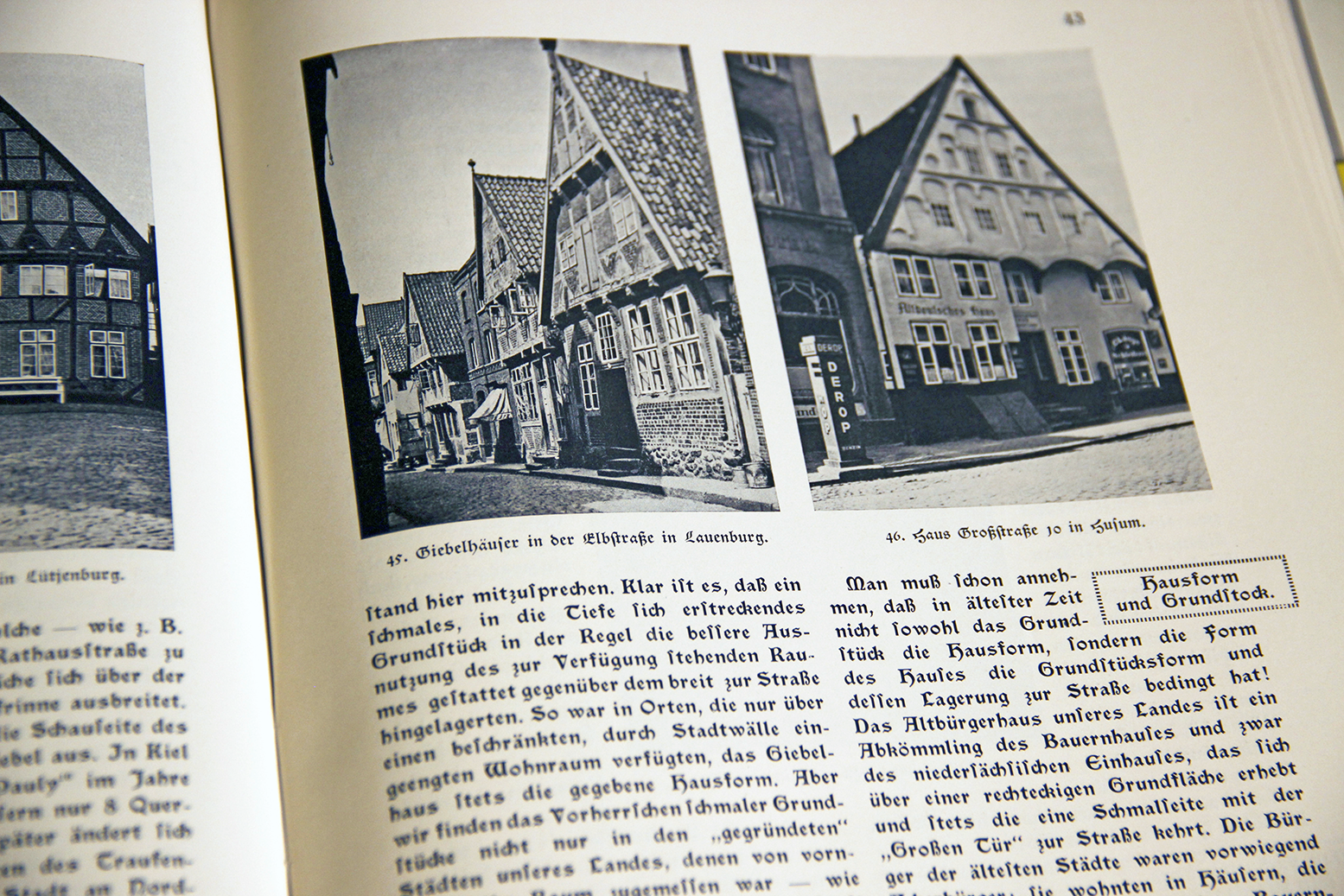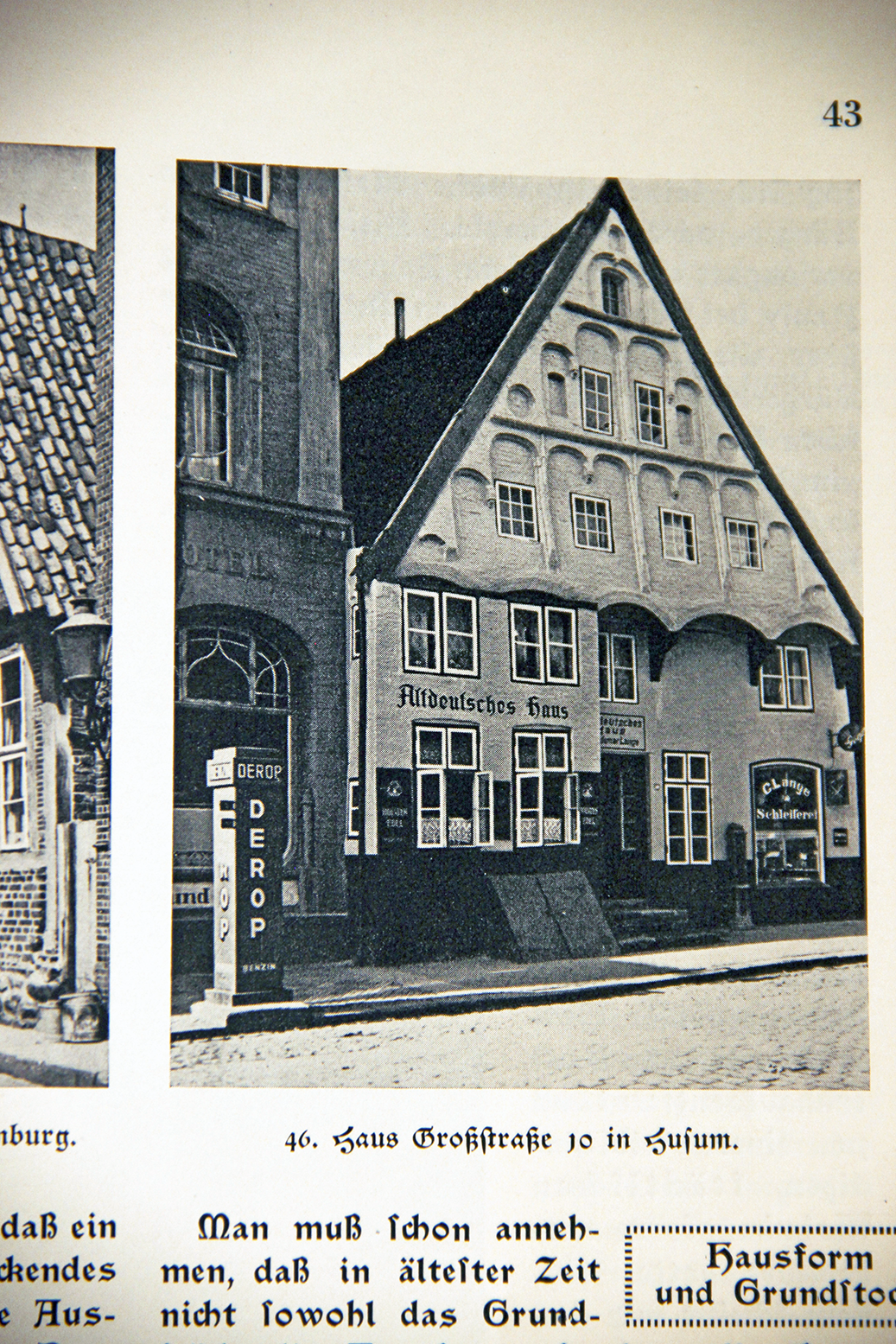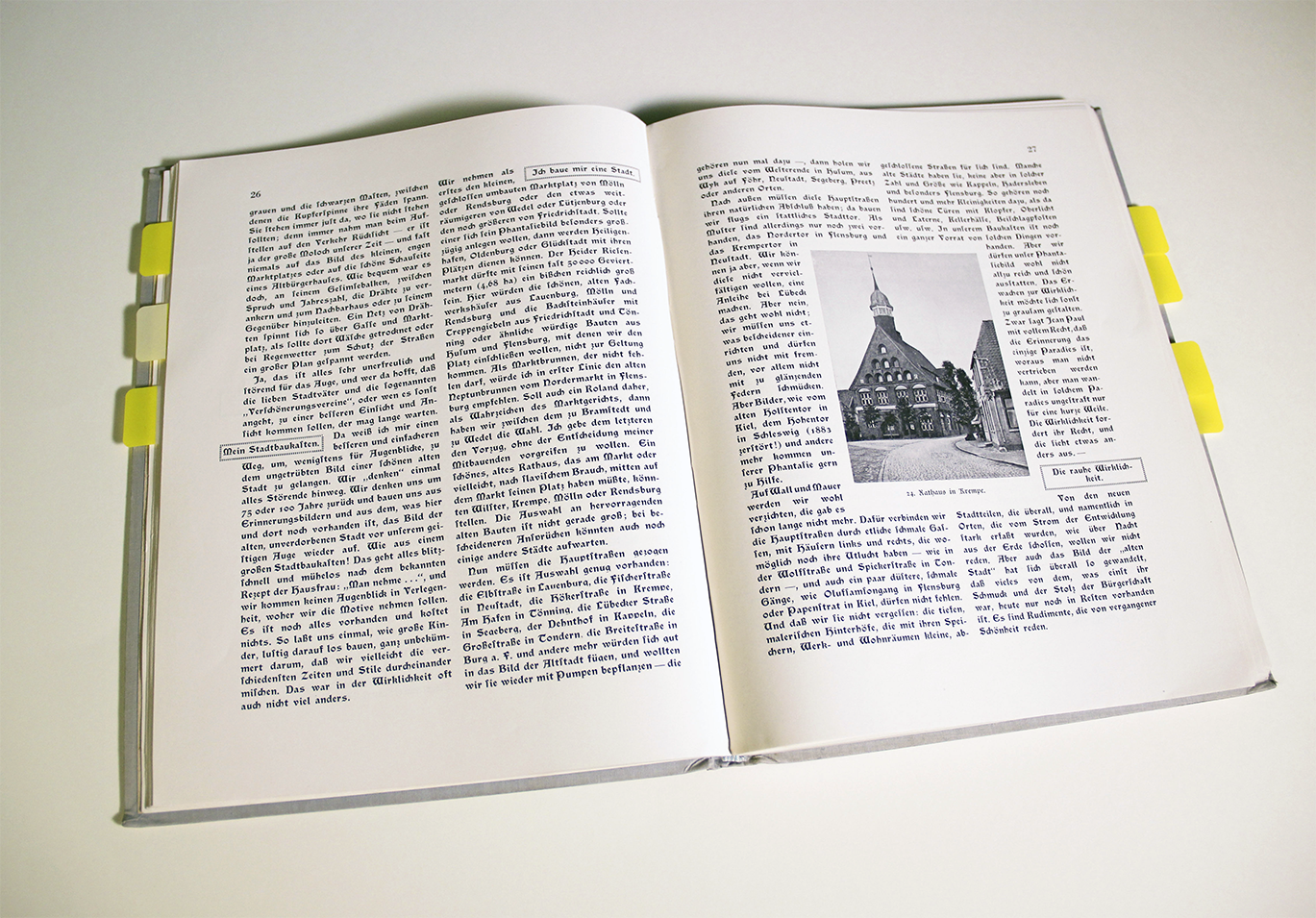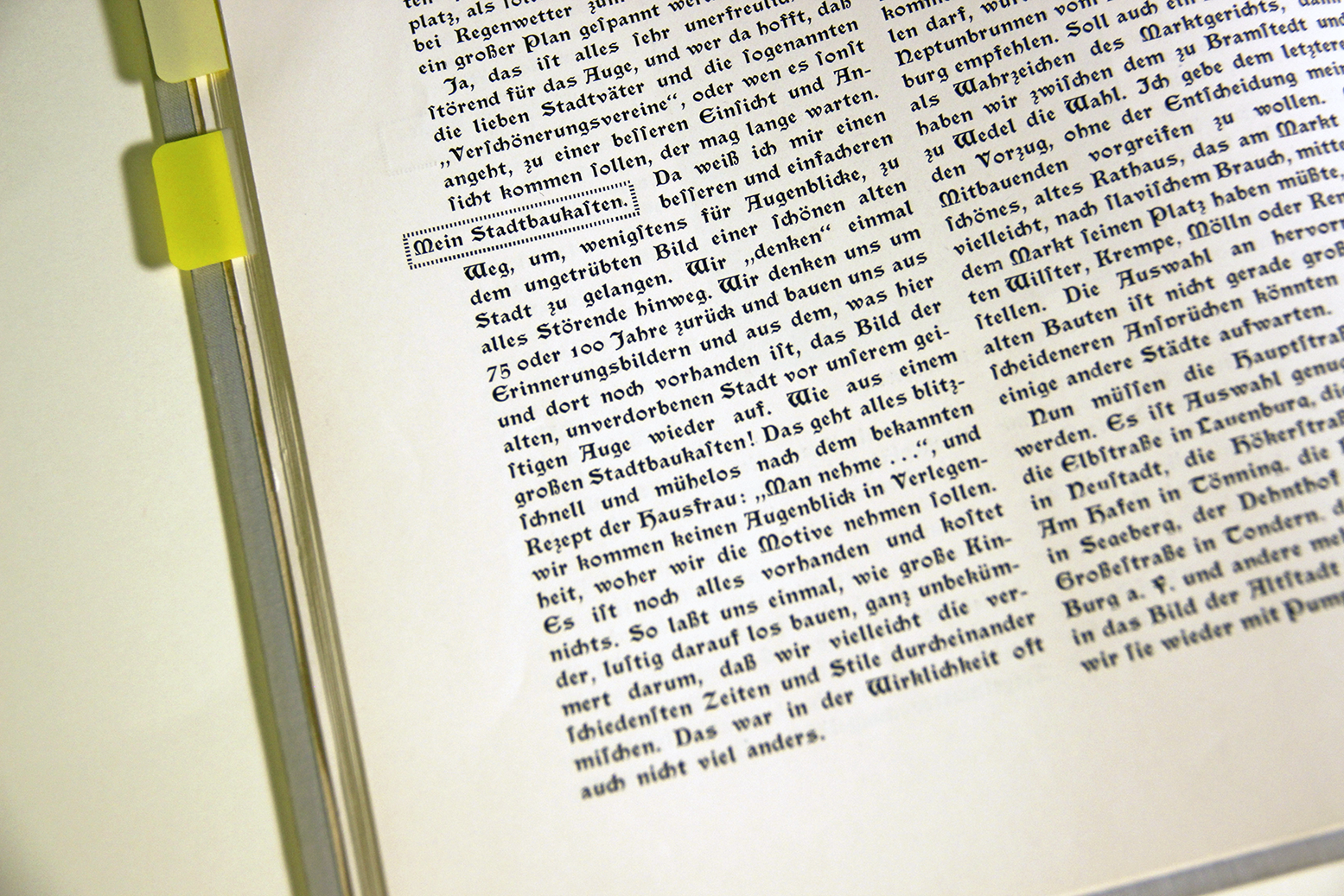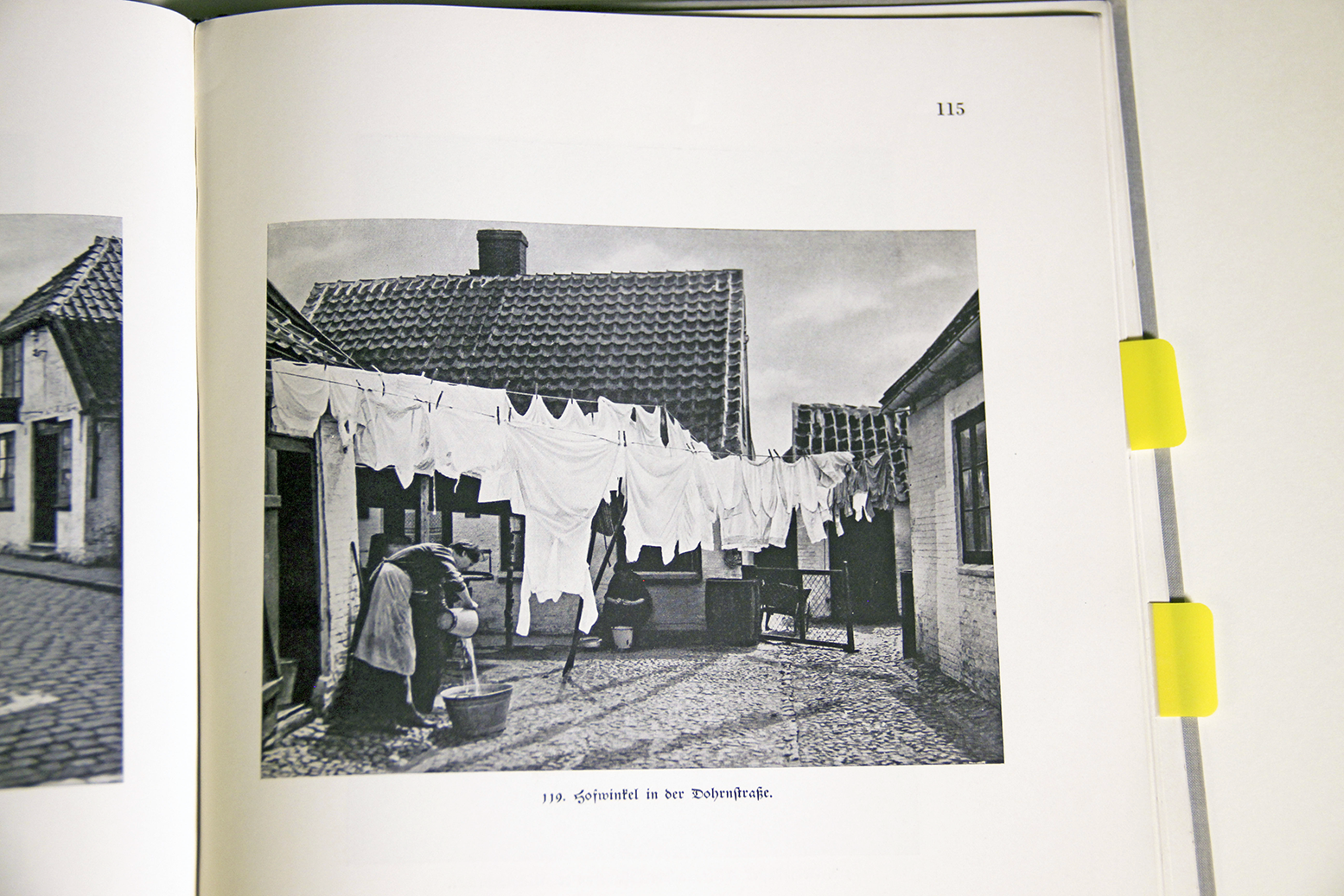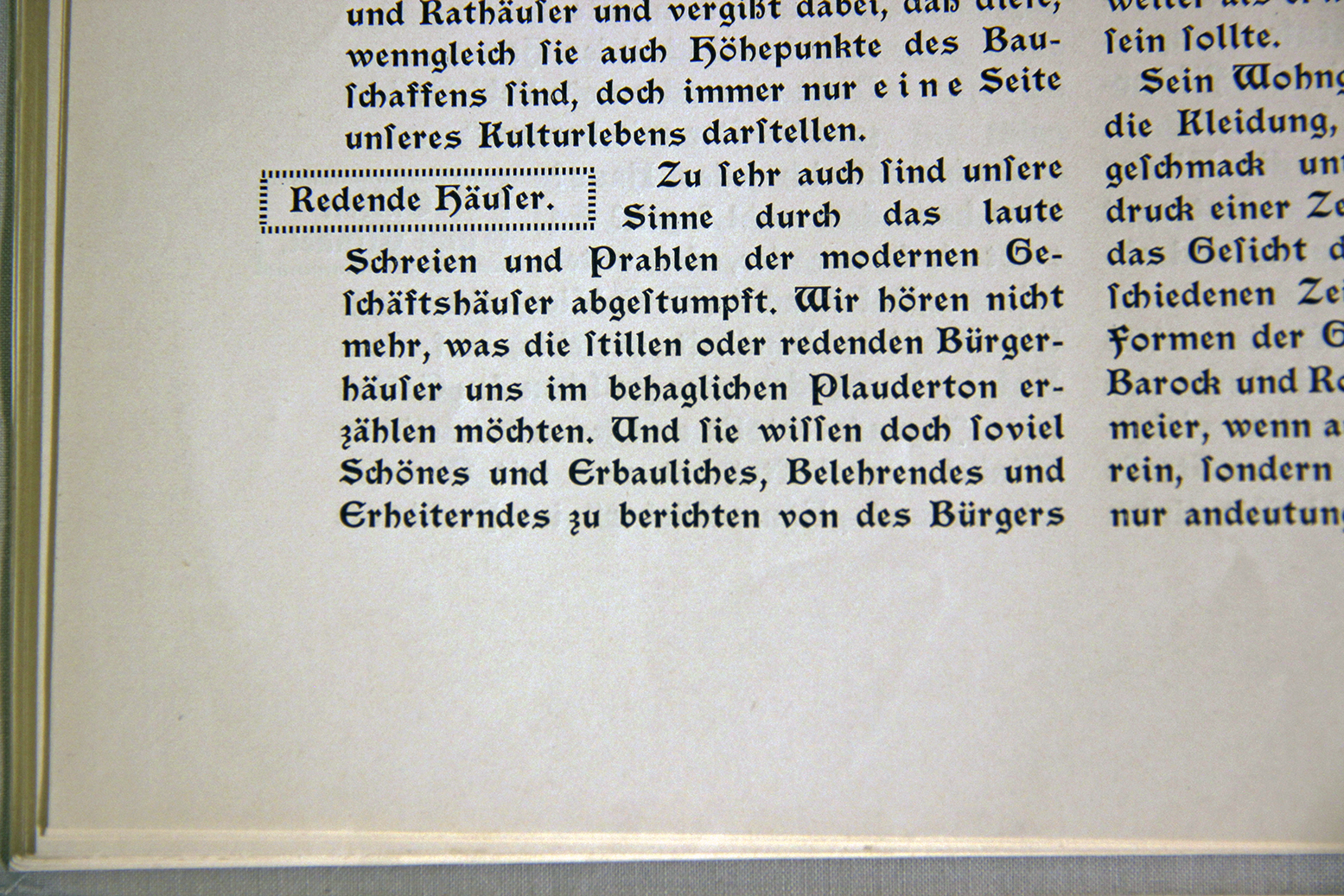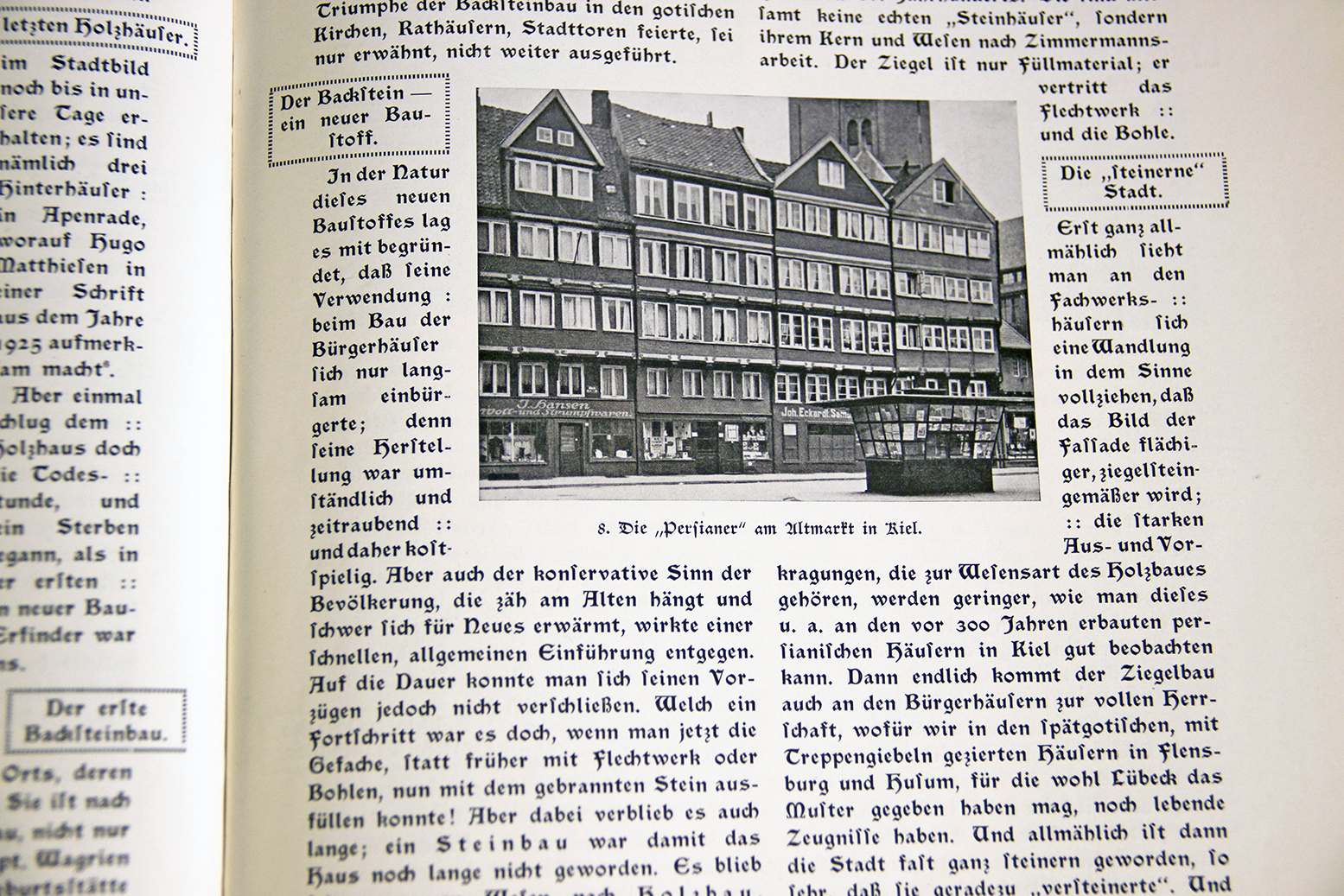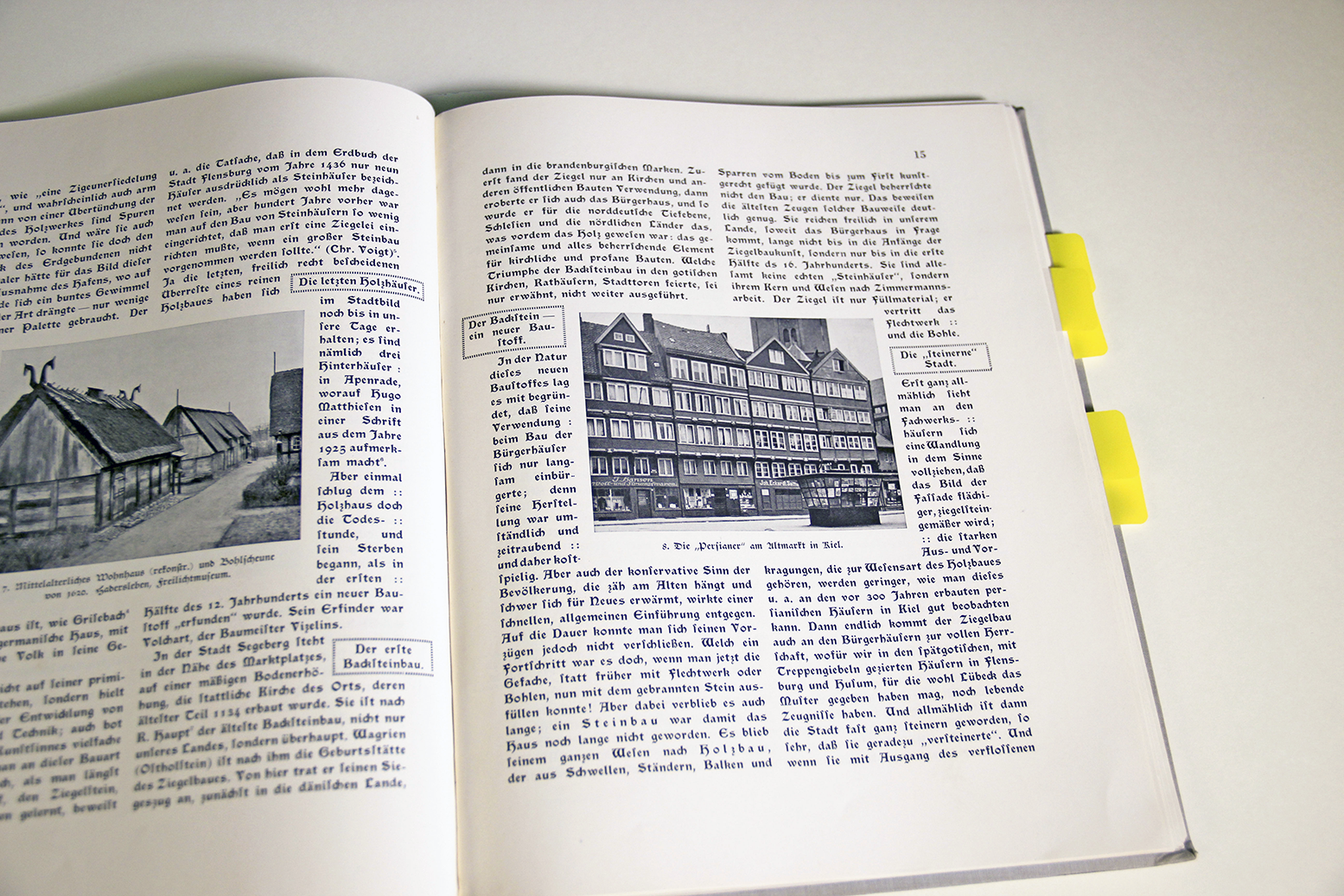
Heimat & Stadt / Homeland & Town

“Stadt als Baukasten, die aus einzelnen Elementen besteht, die er auswählt und sortiert und in ein neues System bringt.”
“The town as a building set consisting of individual elements that he chooses and sorts and puts together in a new system.”
Wie kann das vom Heimatschutzgedanken und vom Impetus der „Geschmacksbildung“ inspirierte fotografische Lebenswerk Theodor Möllers (1873-1953) heute sinnvoll problematisiert werden? U.a. darüber habe ich mit Thomas Overdick am Beispiel des 1933 erschienenen Buchs „Gassen der Heimat. Alt- und Kleinstadtbilder aus Schleswig-Holstein“ gesprochen. Das Buch zum Ausgangspunkt zu nehmen und dadurch weder die Fotografien noch den Fotografen Möller zu dekontextualisieren, kann ein Weg sein.
"Das, was bei Möller noch sehr stark romantisierend und typisierend rüberkommt, wandelt sich schleichend zu einer ‚völkischen Fotografie’ (Hägele), die dem visuellen Ausdruck einer völkischen Blut- und Boden-Ideologie entspricht."
"Möller konnte bei allem Bemühen, die fotografische Aufnahmefähigkeit nie zu 100% kontrollieren."
How can we meaningfully discuss the photographic life’s work of Theodor Möller (1873-1953), which was inspired by the notion of protecting the homeland and the impetus of “aesthetic education”? I talked about this and other things with Thomas Overdick, using the 1933 book Gassen der Heimat. Alt- und Kleinstadtbilder aus Schleswig-Holstein [Lanes of the Homeland: Pictures of Old and Small Towns in Schleswig-Holstein] as an example. One approach is to take the book as a starting point and thus decontextualise neither the photos nor Möller as a photographer.
“What still comes across as highly romanticised and standardised in Möller stealthily changed into a ‘racial photography’ (Hägele), which was the visual expression of the racial ideology of blood and soil.”
"Despite Möller’s efforts, he never fully succeeded in taming the ability of photos to take things in."
"He resolutely cut out ... the modern town."
"Die moderne Stadt ... blendet er konsequent aus."
Aus Theodor Möller: Gassen der Heimat. Alt- und Kleinstadtbilder aus Schleswig-Holstein. Wachholtz Verlag: Neumünster 1933.
Gespräch mit Thomas oVERDICK, Hamburg, 5. Juli 2017
more talks
Check out the chapter "urban research"
